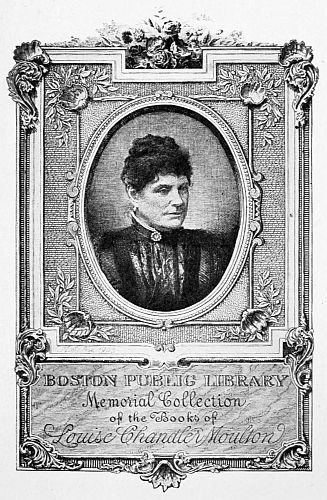CARRIE E. S. TWING.
The Library of Congress
Out in the pasture cool and green,
Where the murmuring brook is seen,
Hurrying its way in its noisy glee
To mingle its waves with the dark blue sea,
I sit and watch, while the shadows creep,
The quiet ways of a flock of sheep.
I watch their ways as they slowly pass,
Stopping to pluck at the tender grass,
And my thoughts go back to the fields once trod,
By the sinless feet of the "Lamb of God,"
Of the sweet words uttered and dear commands
'Mongst which was this one, "Feed my lambs."
But as I sit in the waning light
I notice the sheep are not
all white,
There are
two black sheep with their white wooled brothers,
But they run with the flock and eat grass with the others,
And as I glance from left to right
I wonder if
sheep know
black from white.
But list! there comes from among the sheep
A voice that counsels both low and sweet,
And it says, we sheep can ne'er decide,
For the
blackest sheep are
white inside.
So we go by this, "judge not thy brother,"
And dwell in peace and love each other.
In the pasture green of this world of ours
There are many thistles and many flowers,
And the time ne'er'll come 'til we sleep our last sleep,
When a flock will be found without its black sheep.
I've wondered sometimes if in the last great day
When the good and the bad shall go their way,
We'll not be astonished and doubt our sight,
To see
our black sheep turn out white.
CARRIE E. S. TWING.
The above pretty poem was written by Mrs. Twing when seventeen years of age. Since then she has become famous as the medium for the spiritual writings of Samuel Bowles, late Editor of the Springfield (Mass.) Republican, entitled: No. 1, Experiences of Samuel Bowles (late editor of the Springfield, Mass., Republican) In Spirit Life; or Life as he now sees it from a Spiritual Stand-Point. Written through the mediumship of Carrie E. S. Twing, of Westfield, N. Y. Price,


 Louise Chandler Moulton.
Louise Chandler Moulton.